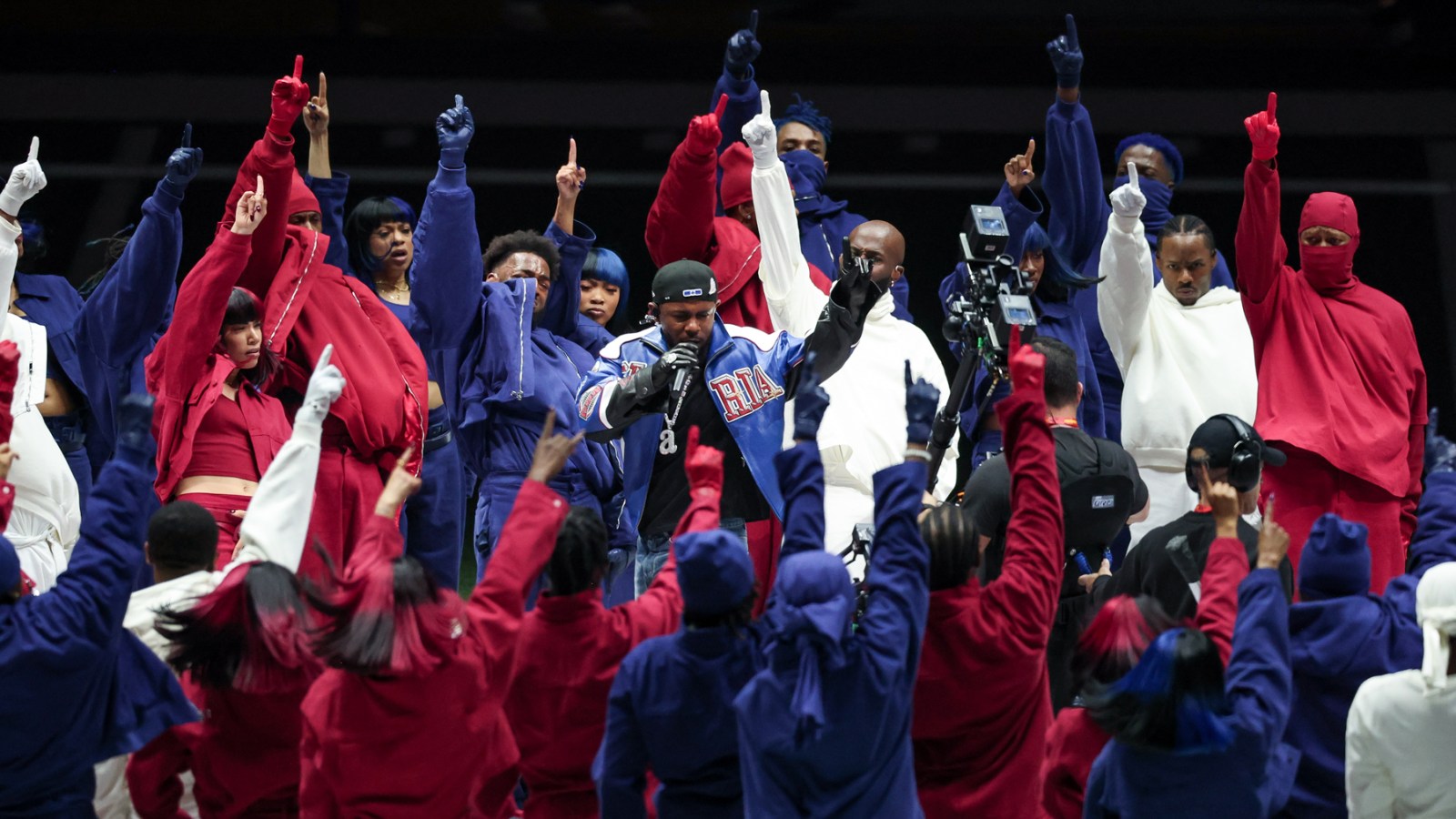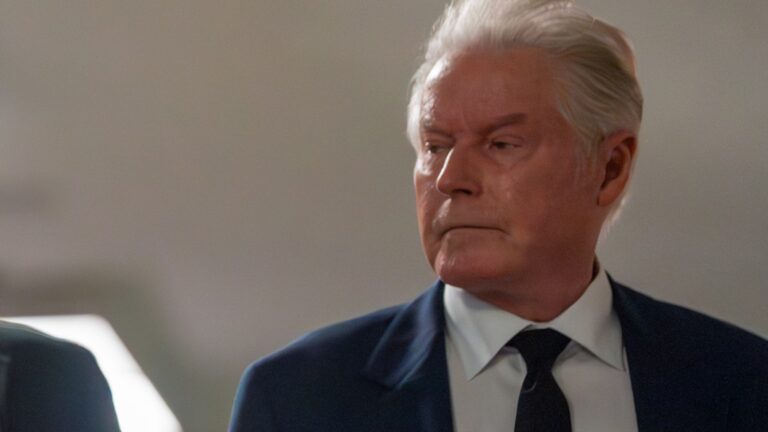Kendrick Lamar‘s halftime performance at Sunday’s Super Bowl was the most-watched in history, with more than 133 million people tuning in — and it also may have been the most uncompromising. In a slot that every previous artist has reserved mostly for greatest hits, Lamar only played bits of two older songs, focusing instead on his excellent new album, GNX, and his Drake-eviscerating smash “Not Like Us.”
On the latest episode of Rolling Stone Music Now, Brittany Spanos and Rob Sheffield join host Brian Hiatt to break down the performance — and try to figure out why a virtuosic turn from one of the greatest artists of the century stirred up a whole lot of controversy. To hear the whole episode, go here for the podcast provider of your choice, listen on Apple Podcasts or Spotify, or just press play above. Here are some highlights from the discussion:
Drake became the show’s main character in absentia. “I can’t think of another time in history that any artist has made an entire Super Bowl halftime show about an artist who has never done the Super Bowl halftime show,” says Sheffield.
Doing almost all new songs at the Super Bowl proved challenging to some viewers. While the Rolling Stones once slipped in “Rough Justice” and Justin Timberlake attempted some Man of the Woods material, no one has ever committed so fully to fresh material on this stage. ”Our idea of a Super Bowl halftime show has been a highlight reel of a person’s entire career,” says Spanos.
It was always unlikely that Lamar was going to directly mention Donald Trump, who attended the game. As the panel discusses, Lamar told Hiatt in a 2017 Rolling Stone cover story, “I mean, it’s like beating a dead horse. We already know what it is. Are we gonna keep talking about it or are we gonna take action? You just get to a point where you’re tired of talking about it. It weighs you down and it drains your energy when you’re speaking about something or someone that’s completely ridiculous.”
Jon Batiste delivered a soulful national anthem with a message of its own. Batiste repeated the line “land of the free” three times, in what Sheffield calls “a very pointed performance.” The panel tries in vain to figure out why conservative critics who objected to Lamar largely overlooked Batiste’s more explicit statement.
Conservatives who seemed outraged by the very existence of Lamar’s performance crystallized America’s cultural divide. Conservative critics seem to believe “winning one election means everything they don’t like in the culture is somehow going to go away,” Hiatt says. “You can win the House, the Senate, and the presidency, but it doesn’t mean you take over the culture.” That said, the performance’s political messages (like the moment where Lamar’s dancers formed a human U.S. flag) were subtle enough that some in MAGA-world found themselves debating over whether the show was even worth getting upset over.
Download and subscribe to Rolling Stone‘s weekly podcast, Rolling Stone Music Now, hosted by Brian Hiatt, on Apple Podcasts or Spotify (or wherever you get your podcasts). Check out six years’ worth of episodes in the archive, including in-depth interviews with Mariah Carey, Bruce Springsteen, Questlove, Halsey, Neil Young, Snoop Dogg, Brandi Carlile, Phoebe Bridgers, Rick Ross, Alicia Keys, the National, Ice Cube, Taylor Hawkins, Willow, Keith Richards, Robert Plant, Dua Lipa, Killer Mike, Julian Casablancas, Sheryl Crow, Johnny Marr, Scott Weiland, Liam Gallagher, Alice Cooper, Fleetwood Mac, Elvis Costello, John Legend, Donald Fagen, Charlie Puth, Phil Collins, Justin Townes Earle, Stephen Malkmus, Sebastian Bach, Tom Petty, Eddie Van Halen, Kelly Clarkson, Pete Townshend, Bob Seger, the Zombies, and Gary Clark Jr. And look for dozens of episodes featuring genre-spanning discussions, debates, and explainers with Rolling Stone’s critics and reporters.



